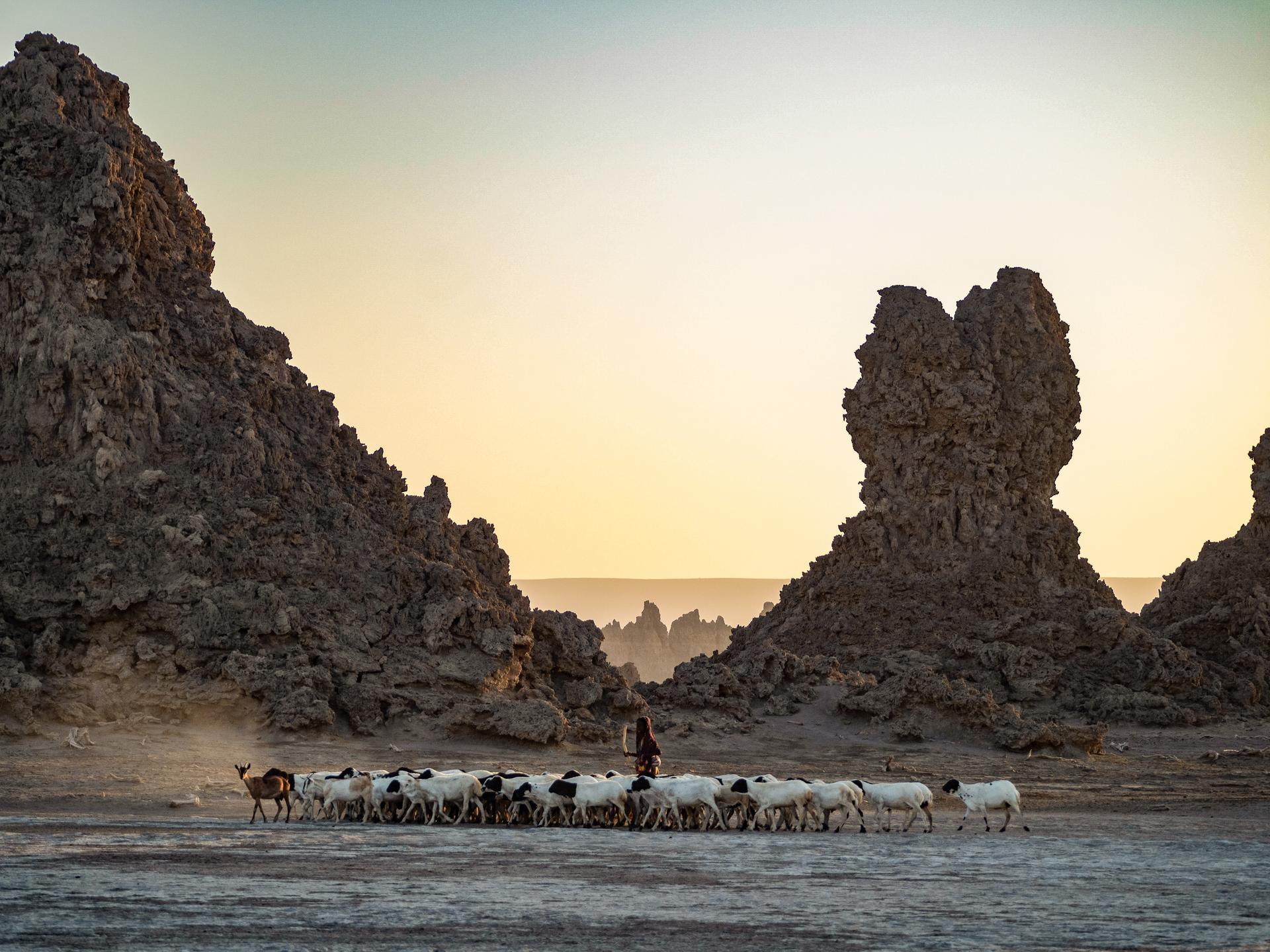Djibouti🇩🇯

Djibouti is a country located on the eastern coast of Africa, situated in the Horn of Africa. It shares borders with Ethiopia, Eritrea, and Somalia. Djibouti has a strategic location near some of the world's busiest shipping lanes and has proximity to Arabian oilfields. The relationship with neighboring countries is stable but cautious due to historical territorial disagreements. Djibouti is known for its rich culture, nomadic traditions, and the Lake Assal, the lowest point of Africa, and one of the saltiest bodies of water globally. The country's unique geography consisting of desert, highlands, and seacoasts makes it a special destination for adventure enthusiasts. Recommended things to visit are the bustling city of Djibouti, Lake Assal, and Day Forest National Park.
⚠️Things you should avoid⚠️
- Avoid drinking tap water, stick to bottled water.
- Avoid displaying large amounts of cash or expensive jewelry in public.
- Avoid driving at night due to poor road conditions and the lack of adequate street lighting.
- Avoid walking alone at night, particularly in isolated areas.
- Avoid sensitive topics such as politics and religion in public discussions.
- Avoid underprepared, raw, or street food to prevent foodborne diseases.
Overall
5
Crime 🔫
5
The crime rate in Djibouti is relatively moderate. Petty crimes such as theft and burglary are common in Djibouti city, the capital. Tourists are advised to avoid walking alone at night and keep an eye on their belongings. The presence of international military and police force provides a degree of security in the regions where they are stationed.
Terrorism 💣
6
Djibouti has been relatively spared from significant terrorist incidents despite being located in a volatile region. The government has proactively worked on anti-terrorism measures including collaboration with international partners. Minor incidents of terrorism have been reported over the years, most notably the attack on a restaurant in the capital city in 2014 by Al-Shabaab, a Somali based extremist group.
War ⚔️
7
Although Djibouti has not been directly involved in warfare for some time, it is situated in a region with historical conflicts. Notably, Djibouti had experienced violent skirmishes with Eritrea over their disputed border. The situation has comparatively improved in recent years.
Natural Disasters 🌊
5
Djibouti is a drought-prone region due to its arid climate. The country also experiences occasional earthquakes, volcanic activity, and heatwaves. In 2020, a major flood displaced thousands of people.
Medical Care 🏥
4
The healthcare system in Djibouti is limited, with insufficient medical facilities and professionals, particularly in rural areas. For serious medical emergencies, evacuation to a country with adequate medical facilities is often required.
Tap Water Quality 💧
4
Tap water in Djibouti is generally not recommended for drinking due to inadequate water treatment. Visitors are advised to drink bottled water to avoid gastrointestinal illnesses.
Disease Burden 🤒
4
Djibouti has a high burden of infectious diseases including malaria, dengue fever and tuberculosis. Intestinal parasitic infections also remain prevalent due to poor sanitation.
Corruption 💸
2
Corruption is widespread in Djibouti across several sectors including the public service department and the judiciary. In Transparency International's 2019 Corruption Perceptions Index, Djibouti ranked 112th out of 180 countries.
Safety for Women ♀️
6
While Djibouti is generally safe for women, there may be occasional instances of harassment. Women are advised to respect local customs and dress modestly.
Safety for Queer People 👬
4
LGBTQ+ rights are not fully protected in Djibouti. Homosexuality is legal, but societal discrimination and stigma can pose a challenge for queer people.
Censorship 📺
3
Djibouti has been criticized for its lack of press freedom. There are instances of censorship, and journalists often face harassment and intimidation. Some international journalists have been expelled in the past.
Public Transportation 🚌
5
Public transportation is available but not highly recommended due to safety and reliability issues. Taxis and hired cars are the preferred mode of transport for tourists.
Other useful information
🔒 How safe is it?
Djibouti is relatively safe for tourists but caution is advised due to instances of petty theft and sporadic terrorist threats. Avoid walking alone at night and always secure your belongings. The country's proximity to conflict-prone regions necessitates vigilance.
🏰 Embassies in this Country
Several countries have embassies in Djibouti including the USA, France, and China. The US embassy is located in Lotissement Haramous, Djibouti City.
💉 Recommended Vaccinations
Vaccinations for Hepatitis A and B, Typhoid, Yellow fever, Meningitis, and Rabies, and routine vaccines such as Measles, Mumps and Rubella (MMR), Diphtheria-Tetanus-Pertussis, Varicella and Polio are recommended.
🐍 Dangerous Animals
Djibouti has limited wildlife due to its harsh environment. However, poisonous snakes and scorpions are present, particularly in desert areas.
🛂 Visa Requirements
A visa is required for most foreigners visiting Djibouti. E-visas can be applied online, and on-arrival visas are also available.
💲 Currency
The official currency is the Djiboutian Franc (DJF). Money can be exchanged at banks and exchange bureaus in the city.
💳 Credit Card Acceptance
Credit cards acceptance is not widespread except in large hotels and restaurants.
🧑🏭 Is it possible to work and travel in this country?
Djibouti's economy is growing, but job opportunities for foreigners, especially for non-French speakers, can be limited. Volunteering opportunities may exist with humanitarian organizations.
💵 Cost of Travel and Living
The cost of living in Djibouti is comparatively high due to the country's reliance on imported goods. Accommodation and meals can be expensive.